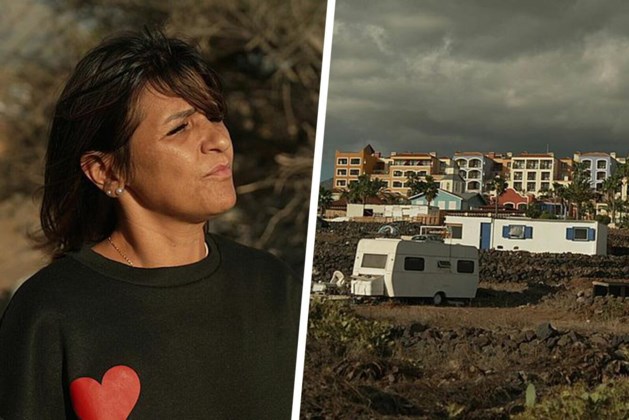Crowds of tourists flock to the seven islands of the Canary Islands for sun, sea and beach. Tourism is the largest source of income for the region, but the local population does not see much of it in return. The Canary Islands are the second poorest region in Spain. EenVandaag, a program on the Dutch channel NPO1, shines a light on the daily lives and frustrations of the local population on the Canary Islands. Opposite the gigantic all-inclusive hotels, swimming pools and luxury, there are poor slums.
Sharp contrast
Maria works as a cleaner and has a salary of 1,300 euros per month. Not unusual, knowing that the average monthly salary is around 1,500 euros. In any case, it is impossible for people like Maria to rent a house or apartment. Due to the many investors and tourists on the island, you cannot find a place to stay for less than 1,000 euros per month. For that reason, Maria lives in a self-built wooden hut, together with other workers. They have no access to water or toilets.
From the hut they not only have a view of various tents and mattresses lying around in the neighborhood. They also have a view of the luxury hotels where Maria works every day. During her work, Maria can see from the front row how well the tourists are doing. “The amount of stuff they throw away there. I don’t even have half of that,” she says in EenVandaag. Maria is confronted every day with the sharp contrast between her own standard of living and that of the tourists. “I understand that people become depressed when they see the high standard of living of other people on this island,” he said. (Read more below the photo)
As a resident of the islands, Maria cannot afford her own home. — © EenVandaag
“We have to earn more as chambermaids,” Maria emphasizes. “We clean up other people’s feces and wash dirty sheets.” According to Iván Cerdena Molina of environmental organization ATAN, 70 percent of chambermaids take medication to keep up their job. “It’s too hard, they have to work too many hours, the working conditions are bad and the money goes to Europe,” says Iván.
More and more tourism, and yet everything is deteriorating
The hotels on the Canary Islands are running at full capacity. According to the president of the archipelago, the hotels are at 90 percent of their capacity. Much more growth is not possible, but reducing tourism would not be an option either. “Tourism provides 40 percent of jobs and 35 percent of GDP,” says President Fernando Clavijo.
“All the billions earned here from tourism do not stay on the island”
Carmen Rock Curve
Opposition party Drago Canarias
And yet the vast majority of that money flows to Europe. “All the billions earned here from tourism do not stay on the island,” says Carmen Peña Curbelo of the local opposition party Drago Canarias. It is not only teeming with tourists, but also with foreign investors, who “take the money back to Europe”. “While many local young people still live with their parents until they are 30, and while there is a huge amount of unemployment,” the politician said. More than 23 percent of the population is said to be unemployed. “This is not normal.”
Tourists are “untouchable”
The Canary Islands are not only seeing financial losses. Disrespectful tourists have been a source of frustration among locals for longer than today. “We just want more respectful tourists,” says Anna Striewe of Funación Canarina. “If you are interested in the culture, local gastronomy, local traditions and you respect nature, that’s fine,” she says. But that often turns out not to be the case.
And yet tourists are canonized by the government. For example, there is currently a major shortage of water on the islands. However, tourists are not bothered by this. “The government declared a water crisis last week. But there are still facilities such as water parks and swimming pools in hotels that do have water,” says Maria. “The water shortage does not apply to tourists.”
(Read more below the photo)
There is no shortage of water amusement parks on the Canary Islands — © Eenvandaag
“They are untouchable,” says Striewe. “When you are critical of tourists, you are called radical.” Regardless, local residents continue to speak out about the situation. “The residents suffer from it,” says Iván Cerdena Molina. “Four kilometers of coastline is destroyed in the Canary Islands every year. If this is progress, then I don’t want it,” he says.
The local population is asking the government to take measures against mass tourism, because there are more disadvantages than advantages. “I especially want the government to set a limit on the number of tourists,” says Curbelo. “So that we can all live in a better way in the Canary Islands.”
